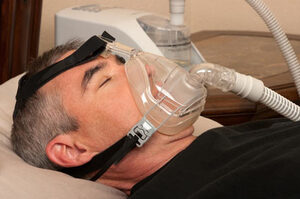Advances in Complex Sleep Apnea Syndrome: Research and Treatment
Posted By Agnes Bright
Body
Various people in the world experience sleep apnea. Central sleep apnea (CSA) and obstructive sleep apnea (OSA) are two types of situations. If you are experiencing any type of sleep apnea disease, then you should consult a sleep apnea doctor houston. Individuals who have both CSA and OSA symptoms have complex sleep apnea disease, which is also known as treatment-emergent sleep apnea.
Understanding Complex Sleep Apnea Syndrome
Complex Sleep Apnea Syndrome also known as CompSAS, is a basically new term in the sector of sleep medicine. It is represented by a combination of obstructive and central sleep apnea events. In OSA, the airway becomes blocked or collapses during sleep, leading to breathing pauses. On the other hand, CSA involves a failure of the brain to signal the muscles to breathe properly.
CompSAS can develop in individuals with pre-existing OSA when they undergo treatment with continuous positive airway pressure (CPAP) therapy, which is a common treatment for OSA. In some cases, the use of CPAP can unmask or worsen underlying central sleep apnea. This transition from OSA to CompSAS can be challenging to diagnose and manage.

Advancements in Diagnosis
Polysomnography
The complete sleep exam, known as polysomnography, is an effective method for identifying CompSAS. During sleep, it logs a variety of physiological factors, including brain activity, eye movement, heart rate, and breathing effort. This data helps clinicians differentiate between obstructive and central events, aiding in the diagnosis of CompSAS.
Portable Monitoring Devices
Advancements in technology have shown the consequence of portable monitoring devices and that can be utilised in the home setting. These devices are less intrusive and more comfortable for patients, making it easier to gather data for diagnosis.
Treatment Options for CompSAS
Adaptive Servo-Ventilation (ASV)
ASV devices are a recent innovation in sleep apnea therapy. They can adjust airway pressure on a breath-by-breath basis, effectively treating both obstructive and central events. ASV therapy has shown promising results in managing CompSAS.
Bi-Level Positive Airway Pressure (BiPAP)
BiPAP machines deliver two different pressure levels: one for inhalation and a lower one for exhalation. This can help stabilize breathing patterns in individuals with CompSAS, as it provides additional support when needed.
Medications
To promote breathing and lessen the seriousness of central sleep apnea occurrences, doctors may occasionally prescribe drugs like acetazolamide and sleep apnea oral appliance cost. However, when other therapies fail, these drugs are frequently employed.

Ongoing Research
Phrenic Nerve Stimulation
Researchers are exploring the use of phrenic nerve stimulation as a potential treatment for CompSAS. This involves implanting a device that stimulates the diaphragm to promote regular breathing.
Genetic Studies
According to several research, central sleep apnea may have a hereditary component. Finding genetic indicators that could indicate who is more likely to develop CompSAS is the subject of ongoing study.
Conclusion
Complex Sleep Apnea Syndrome presents unique challenges for both diagnosis and treatment. However, advancements in research and technology have greatly improved our understanding of this condition and expanded the range of treatment options available. If you suspect you have CompSAS or are experiencing symptoms of sleep apnea, it is essential to seek medical evaluation and consultation with a sleep apnea oral appliance dentist near me in Houston. With the right diagnosis and appropriate treatment, individuals with CompSAS can significantly improve their sleep quality and overall health.










Comments